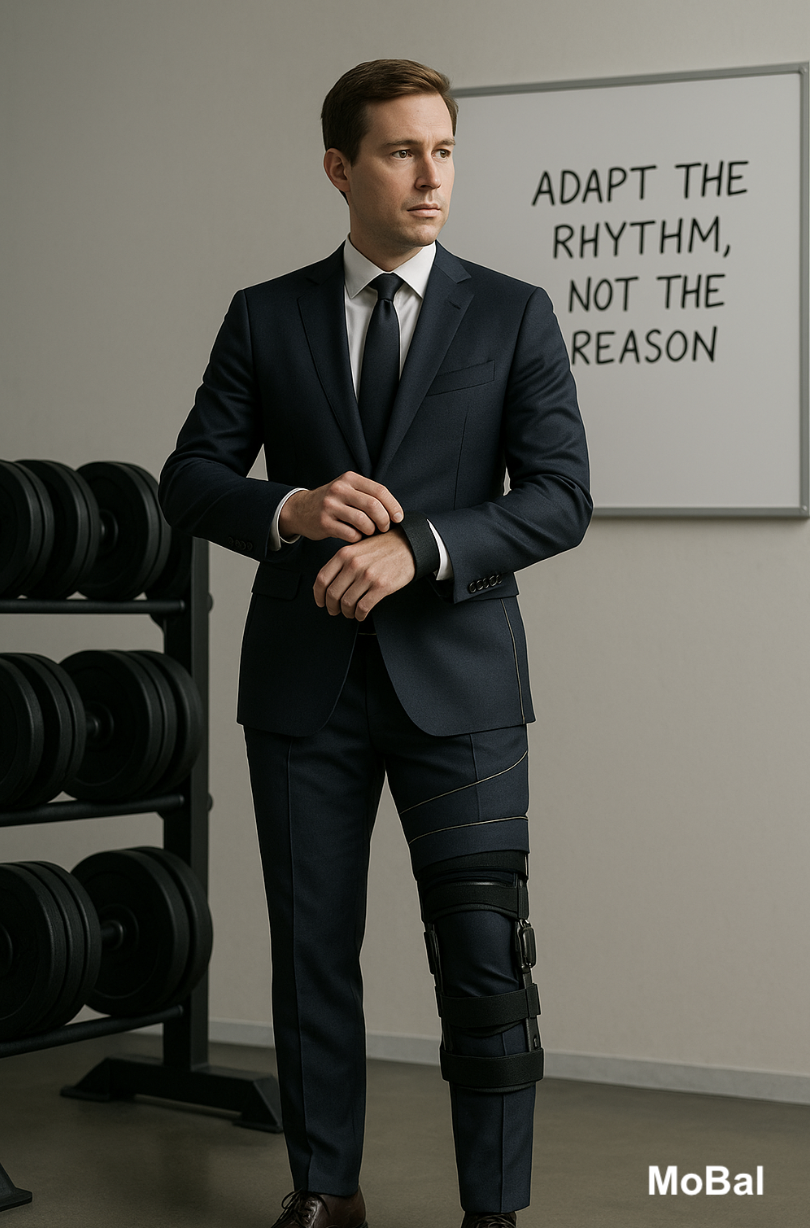
Setbacks Don’t Stop Systems
Author: Marvin V Acuna
Setbacks Don’t Stop Systems
In every journey towards mastery and leadership, one inevitable truth stands: setbacks will come. They test our resolve, time, and again, providing value not only in their lessons but in their ability to refine our systems. As we explore the power of resilience, adaptation, and consistency, remember this: setbacks don't stop systems. They strengthen them.
The Spartan Principle of Endurance
The Spartans, with their unyielding discipline and relentless pursuit of excellence, provide a rich framework for understanding resilience. For the Spartans, physical mastery wasn't just about might; it was a pathway to leading a life of purpose. This echoes our core belief: "Change Your Body. Lead Your Life."
Resilience: It’s not about how hard life hits but how steadfastly one stands back up. Just as a Spartan warrior would go through rigorous training to prepare for challenges, you, too, must fortify your mind and body. Endurance is cultivated through consistent practice and a well-maintained system.
Adaptation: A rigid tree breaks in the storm, while the flexible reed bends. Systems that succeed are not the ones that are unyielding, but those that adapt. Embrace setbacks as opportunities to adjust your strategies, allowing you to thrive under new conditions.
Consistency: This is the adhesive that holds the fabric of mastery together. Consistent efforts breed unwavering discipline and maintain the momentum needed to weather any storm. The Spartans achieved legendary status not through sporadic brilliance but through relentless, consistent training.
The Anatomy of a Strong System
Any exceptional leader knows that behind their accolades and success is a robust system. But what makes a system undefeatable?
Clarity of Purpose: A system without a clear goal is like a ship without a rudder. Define what physical mastery and leadership mean to you. Set specific, measurable, and attainable goals.
Simplified Processes: Streamline actions. Remove the superfluous so that your focus is only on what's essential. This simplicity allows for quick adjustments during setbacks.
Feedback Loops: Create a system that not only encourages you to push boundaries but also gives timely feedback. Whether that's through a mentor, a community, or self-reflection, such loops guide necessary adaptations.
Continuous Learning and Growth: Anchor your system on the principle that there’s always room for improvement. Stay hungry for knowledge, and embrace every failure as a stepping stone rather than a stopping point.
Cultivating a Resilient Mindset
The battle is often won or lost in the mind. Cultivating a mindset that thrives on challenges and sees setbacks as opportunities is critical. Here are strategies to enhance your mental resilience:
Embrace Discomfort: Get comfortable with the uncomfortable. Growth often lies just outside of your comfort zone. Seek challenges that push you to adapt and strengthen.
Visualize Success: Envision yourself achieving your goals despite adversities. This not only prepares your mind for what’s to come but ignites a powerful drive to maintain your system despite setbacks.
Controlled Breathing and Mindfulness: These help manage stress and maintain focus. Practice techniques like deep breathing or meditation to stay grounded, calm, and concentrated.
The Role of Adaptation
Advanced systems are dynamic, not static. To lead effectively, you must seamlessly transition from rigidity to adaptability. Here's how:
Anticipate Change: Cultivate foresight. Develop scenarios for potential setbacks and craft pre-emptive strategies. This adaptability will help you adjust swiftly without losing momentum.
Integrate Failure: Incorporate the lessons drawn from failures into future plans. Successful systems are those that improve with each setback, not despite them.
Innovation in Recovery: When setbacks do occur, use them as a launching pad for innovation. Each reset can be a renaissance, an opportunity to rise stronger.
Consistency as the Backbone of Mastery
Without consistency, even the most robust systems falter. Here’s how to harness the power of consistency:
Routine Mastery: Establish daily habits that align with your goals. Your routine should be a sacred pact with yourself—a daily commitment to progress.
Reflect and Adjust: Regularly evaluate your progress. Keep what works, modify what doesn’t. Consistency is not synonymous with rigidity; it’s about persistently pursuing improvement.
Accountability: Whether it’s a partner, a mentor, or a group, accountability keeps you honest with your commitments. It encourages consistency through communal support and shared goals.
The Synergy of Change and Leadership
Leadership, at its core, is about guiding others towards a shared vision. By focusing on personal mastery through the systems we build, we are more equipped to lead others effectively. Change in your physical capability translates to improved leadership skills. The discipline, resilience, and adaptability carried over from personal growth naturally influence your professional and social interactions.
Lead by Example: Be the embodiment of the change and consistency you wish to see in others. Inspire through action.
Empower Others: Teach others how to build and maintain their systems. Share your experiences and encourage an environment that thrives on mutual growth.
Encourage Shared Vision: As you master change personally, cultivate a collective vision among your peers. Foster environments where everyone’s growth is celebrated and setbacks are collectively used for growth.
Conclusion
Setbacks don’t destroy well-oiled systems; they fortify them. Just as Spartans used discipline to cultivate physical mastery and leadership, you can use setbacks as stepping stones to amplify your resilience, adaptability, and consistency. Remember: change your body, and you’ll lead your life. And as challenges arise, rely on your system, allowing it to reinforce the indomitable leader within you.